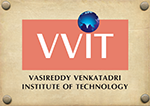Department Vision
To achieve the yearnings of arising architects to accomplish worldwide knowledge by acquiring figuring and plan capacities through correspondence that raise them to address the issues of industry, economy, society, ecological and worldwide.
Department Mission
- To give the satiate of-the craftsmanship offices to fashion the understudies in industry-prepared in Artificial Intelligence and Data Science
- To cultivate the intelligence of creativity and innovation for various socio-economic related applications useful for increasing the productivity.
- To encourage alliance with the apparent industries to have the best of all careers.
- To empower graduates as novel entrepreneurs.
Program Educational Objectives (PEOs)
PEO 1 : To provide the graduates with solid foundation in Computer Science and Engineering along with the fundamentals of Mathematics and Sciences with a view to impart in them high quality technical skills like modelling, analysing, designing, programming and implementation with global competence and helps the graduates for life-long learning.
PEO 2 : To prepare and motivate graduates with recent technological developments related to core subjects like Programming, Databases, Design of Compilers and Network Security aspects and future technologies so as to contribute effectively for Research & Development by participating in professional activities like publishing and seeking copy rights.
PEO 3 : To train graduates to choose a decent career option either in high degree of employability/Entrepreneur or, in higher education by empowering students with ethical administrative acumen, ability to handle critical situations and training to excel in competitive examinations.
PEO 4 : To train the graduates to have basic interpersonal skills and sense of social responsibility that paves them a way to become good team members and leaders.
Program Outcomes (POs)
PO1 : Engineering knowledge: Apply the knowledge of mathematics, science, engineering fundamentals, and an engineering specialization to the solution of complex engineering problems.
PO2 : Problem analysis: Identify, formulate, review research literature, and analyze complex engineering problems reaching substantiated conclusions using first principles of mathematics, natural sciences, and engineering sciences.
PO3 : Design/development of solutions: Design solutions for complex engineering problems and design system components or processes that meet the specified needs with appropriate consideration for the public health and safety, and the cultural, societal, and environmental considerations.
PO4 : Conduct investigations of complex problems: Use research-based knowledge and research methods including design of experiments, analysis and interpretation of data, and synthesis of the information to provide valid conclusions.
PO5 : Modern tool usage: Create, select, and apply appropriate techniques, resources, and modern engineering and IT tools including prediction and modeling to complex engineering activities with an understanding of the limitations.
PO6 : The engineer and society: Apply reasoning informed by the contextual knowledge to assess societal, health, safety, legal and cultural issues and the consequent responsibilities relevant to the professional engineering practice.
PO7 : Environment and sustainability: Understand the impact of the professional engineering solutions in societal and environmental contexts, and demonstrate the knowledge of, and need for sustainable development.
PO8 : Ethics: Apply ethical principles and commit to professional ethics and responsibilities and norms of the engineering practice.
PO9 : Individual and team work: Function effectively as an individual, and as a member or leader in diverse teams, and in multidisciplinary settings.
PO10 : Communication: Communicate effectively on complex engineering activities with the engineering community and with society at large, such as, being able to comprehend and write effective reports and design documentation, make effective presentations, and give and receive clear instructions.
PO11 : Project management and finance: Demonstrate knowledge and understanding of the engineering and management principles and apply these to one’s own work, as a member and leader in a team, to manage projects and in multidisciplinary environments.
PO12 : Life-long learning: Recognize the need for, and have the preparation and ability to engage in independent and life-long learning in the broadest context of technological change.
Program Specific Outcomes (PSOs)
PSO-1: Professional Skills: The ability to understand, analyze and develop computer programs in the areas related to algorithms, system software, multimedia, web design, big data analytics, and networking for efficient design of computer based systems of varying complexity.
PSO-2: Successful Career and Entrepreneurship: The ability to employ modern computer languages, environments, and platforms in creating innovative career paths to be an entrepreneur and a zest for higher studies/employability in the field of Computer Science & Engineering.


